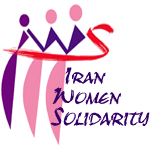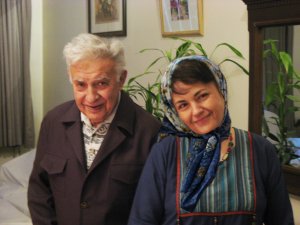International Solidarity with the Iranian Women’s Struggle
At this moment in time, after twenty seven years of arduous experience, the movement for women’s rights in Iran has entered the arena of a momentous challenge by referring to international conventions in order to put forward the idea of “equality,” and to declare the need for “the abolition of all discriminatory laws.” From this perspective the struggle of pioneering women to create cultural centres, organise group actions, and initiate numerous protest campaigns such as “the Campaign for One Million Signatures ” and that of “No More Stoning” are extremely promising developments.
Putting forward these issues and advancing these social actions would more tightly than ever link the demand for “equality” to that of “freedom.” It is not far fetched to claim that at present the women’s movement, parallel to, and in conjunction with, other social movements for justice, lies at the heart of the democratic struggle in Iran.
This movement, by bringing together men and women with different frames of mind in defence of equality, has initiated a socio-cultural campaign that questions all manifestations of power. This has come about because gender relations are social, political, and cultural concerns that cover all domains of life, from the most private to the most public. Participation in the struggle for women’s rights, therefore, invites each and every member of society to reconsider personal, social, and political attitudes.
In Iran today “bad veiling” is an excuse for the daily attacks of the agents of the state against women who say no to the ideological prototype of the Islamist system. Meanwhile those in power use these assaults to justify and consolidate the presence of forces of oppression on the social scene, with the purpose of coercing the public in general. Women’s forcible “veil,” the symbol of their subordination, has also turned into an instrument of suppression on all social levels.
The situation of women is indeed a mirror that fully reflects the real features of the dominant power, while the feminist approach, by informing about gender relations, reveals the complexity of power relations operating on various levels of social life. It is not possible to limit feminist thought and action within the framework of a single party or or political organisation. Meanwhile it is impossible to deny the conflict of political group interests in this relation. Bearing this in mind is of vital importance in taking a position toward statements and actions that lay claims to defending women’s rights.
In the campaign started by pioneering Iranian women these claims would also be put to the test. It cannot be disputed that the approach of individuals and groups in relation to women’s cause is a measure of their perseverance in the demand for freedom, equality and justice in general.
Under such fateful circumstances we, a number of Iranian women abroad who have for years been engaged in promoting the cause of women, have decided to, without compromising our intellectual independence, take coordinated steps to effectively support the legitimate objectives of the women’s movement in Iran. For all our diversity of opinion and intellectual and political differences, we have, throughout the years, said no to Islamic feminism and defended and worked for the independent struggle of women for freedom and equal rights.
Our present coordinated effort will continue, based on the following common parameters:
1. An understanding of the need to actively support the movement of women in Iran that by means of the demand for “equality” works for the abolition of all sexual discrimination by referring to international conventions that secure human rights and the freedom of women.
2. A shared belief in the fact that the women’s demands can in no way be compromised by any justification or interpretation such as respect for ethnical, religious, or national identity. The cooperation of non believers or believers in various faiths in defending international human rights and the freedom and equality of women would pave the way toward the well being of the individual as well as that of society.
3. Since the demand for “equality” is closely connected to that of “freedom” we believe in extending the collaboration of the women’s movement with other just and democratic movements.
4. Shared belief in the struggle against mandatory “veil” as a symbol of the subordination of women and an instrument in establishing sexual discrimination.
5. Since the extension of suppression can dampen the ongoing struggle we who live outside the country can use the existing freedom of expression and play a necessary role in support of the feminist movement in Iran by participating in a critical dialogue and maintaining our independence of opinion.
Considering these shared minimums and continuing to observe them, we, members of this network in various parts of the world, will engage in putting forth and taking steps in active support of the women’s movement in Iran. We sincerely call on all women who share these points and believe in this supportive action to join us in this undertaking.
1- Shahla Abghari – USA 2- Simin Afshar – Germany 3- Ealahe Amani – USA 4- Negar Amuzandeh – Canada 5- Irandocht Ansari – France 6- Lehila Aslani – Germany 7- Anna Asieh Pak – Frence 8- Mariam Azimi – Deutschland 9- Chahla Chafiq – Frence 10- Mahvash Dalai – Germanyd 11- Haideh Daragahi – Sweden 12- Jasmin Darvish – Austria 13- Parvin Ebrahimzadeh – Germany 14- Giti Edalati – Germany 15- Shahla Feyzi – Germany 16- Ghodsi Hejazi – Germany 17- Farmiah Ijadi – Germany 18- Sholeh Irani – Schweden 19- Atefe Jafari – Germany 20- Golroch Jahangiri – Germany 21- Mihan Jazani – Frence 22- Fatemah Kabiri – Germany 23- Monireh Kazemi – Germany 24- Nargese Cermanshahi – Kanada 25- Sima Mahzari – Germany 26- Soheila Mirzai – Germany7- Akram Mosavi – Germany 28- Nahid Nosrat – Germany 29- Hamila Nisgili – Germany 30- Mariam Nouri – Germany 31- Mahshid Pegahi – Germany 32- Katayon Pirdavari – Deutschland 33- Mahshid Rasti – Schweden 34- Mihan Rusat – Germany 35- Nasrin Saadeghi – Germany 36- Saideh Sadat – Germany 37- Elahe Sadr – Germany 38- Parvin Saghafi – Deutschland 39- Giti Salami – Germany 40- Parvaneh Sepehr – England 41- Jaleh Talen Hariri – Germany 42- Parvaneh Zargar – Germanyd 43- Mojdeh Noorzad Germany
International Solidarity Network with Iranian Women’s Movement


